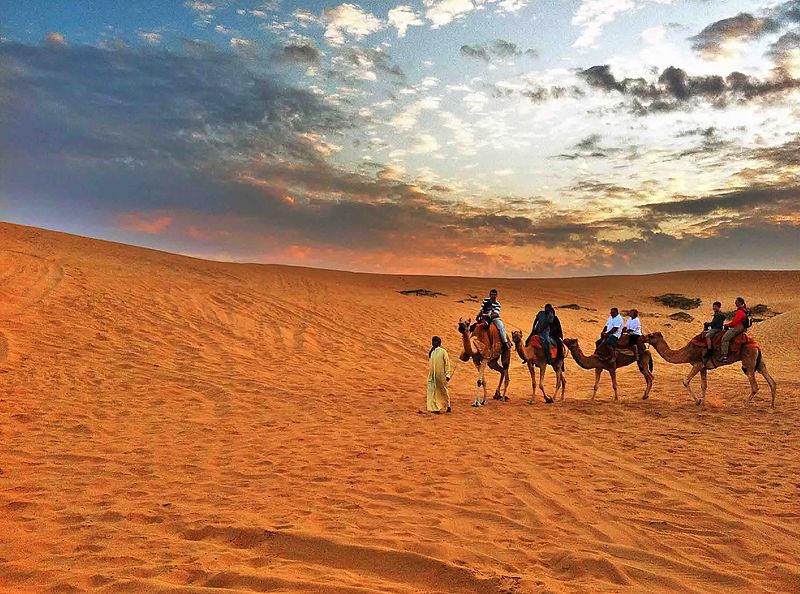Written by Rabbi Aaron Lerner, senior Jewish educator of Hillel at UCLA
Most Americans strive for efficiency. The popular Israeli-invented app Waze, for instance, provides many of us with a significantly reduced commuting time. In fact, just yesterday, it directed me to exit the freeway and take a surface arterial that paralleled the freeway so that I could avoid the traffic which had built up from a minor accident. That saved me 20 minutes.
Now, anyone who knows geography knows that the fastest way to get from Egypt to Israel is by traveling directly northeast through the area which is now the Gaza Strip. G-d knew this as well. But when G-d gave instructions to Moses about how to enter the land (then called Canaan), they were sent directly to the east and even southward.
The commentators question the reason for this indirect route and give several explanations, the most prominent of which says that G-d knew that the inhabitants of southwestern Canaan were extraordinarily strong and mighty. Their prowess in war was known in the region, and G-d was concerned that the Jewish slaves would see a tough battle ahead and turn back to Egypt instead of fighting.
And so it was that the Jews turned towards the Sinai Desert, a land they would not leave for another 40 years.
I suppose my question in all of this is: what are we supposed to learn from the story? One possibility is that had the Jews exhibited more bravery, it’s possible they could have spared themselves 40 years of wandering in the desert.
Another possibility would seem to be that sometimes the most efficient route is not the best route. Maybe we’re not yet quite mature enough or strong enough to face a roadblock and simply need to drive around it for the time being. Maybe there is some learning, training, or relationship-building that we need to do first.
It reminds me a little of the moment when Waze tried to have me cross a seven-lane thoroughfare with traffic rushing in both directions. From the map it looked like a good idea. But from the driver’s seat it looked like certain death.
I want to share this week that there may be times when we don’t have to drive ourselves crazy trying to arrive at the destination as quickly as possible. In fact, it might even be something called purposeful meandering.
Either way you take it, but look both ways before crossing.
____________
This article is part of Ha’Am’s Friday Taste of Torah column. Each week, a different UCLA community member will contribute some words of Jewish wisdom in preparation for Shabbat.

